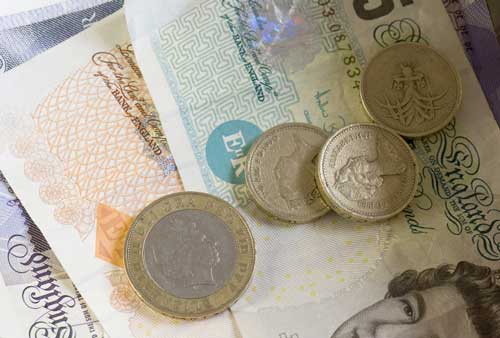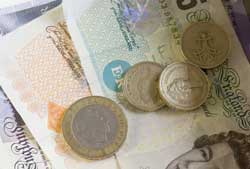Chatter amongst the public, and throughout government bodies, labels cash as a facilitator of illegal activity, tax evasion, money laundering and more. The ability for transactions using cash to be highly anonymous and hard to trace makes for it to be one of the largest tools in UK money laundering.
Businesses taking in cash show a lower rate of tax compliance due to keeping inaccurate transaction records either by error, or by design. The latter has businesses hiding taxable income by under-reporting cash turnover.
The tax gap measures the amount of money the government expects to receive in tax receipts against what they actually receive. A few years ago, the tax gap was around £34 billion - or about 6 percent of total tax take.
Breaking that figure down into segments shows around £19 billion that could partly be remedied by revolutionising, or limiting, cash payments. In tax gap stats, large chunks of the gap are attributed to 'failure to take reasonable care', 'evasion', 'hidden economy', 'error' and 'avoidance'.
The tax gap has been steadily falling over the last 10-15 years and the government is keen to push further. Digital payments are a major contributor to the reduction of tax evasion so the government continues to look for ways to limit the ability for cash to be used as a means for avoidance tax and money laundering.
Last March, a consultation was started to get the views of stakeholders on how cash is used, the reliance and importance of it by law-abiding segments of society and how modernisation can occur. It is important to remember that cash still makes up nearly 35 percent of all UK payments so a large amount of honest activity and only a minority of fraud.
Cash use has reduced by nearly half since 2007, but is still relied upon by many. Hundreds of respondents to the consultation stated that cash is a symbol of independence, an important tool for budgeting and relied upon by the vulnerable and elderly. Over 2 million people use cash daily - over 15 percent of people earning under £10,000 per year are in this group, including those who do not have bank account. People who are way below the personal tax-free allowance.
Rather than look to limit cash use further, the Government is looking to support more adoption of digital payments and reduce the use of cash, organically. More drivers toward increasing compliance in the form of the Making Tax Digital systems will also lower the tax gap.
Under the pressure of these drivers, cash use over the next decade is predicted to drop to around 16 percent of all payments.



